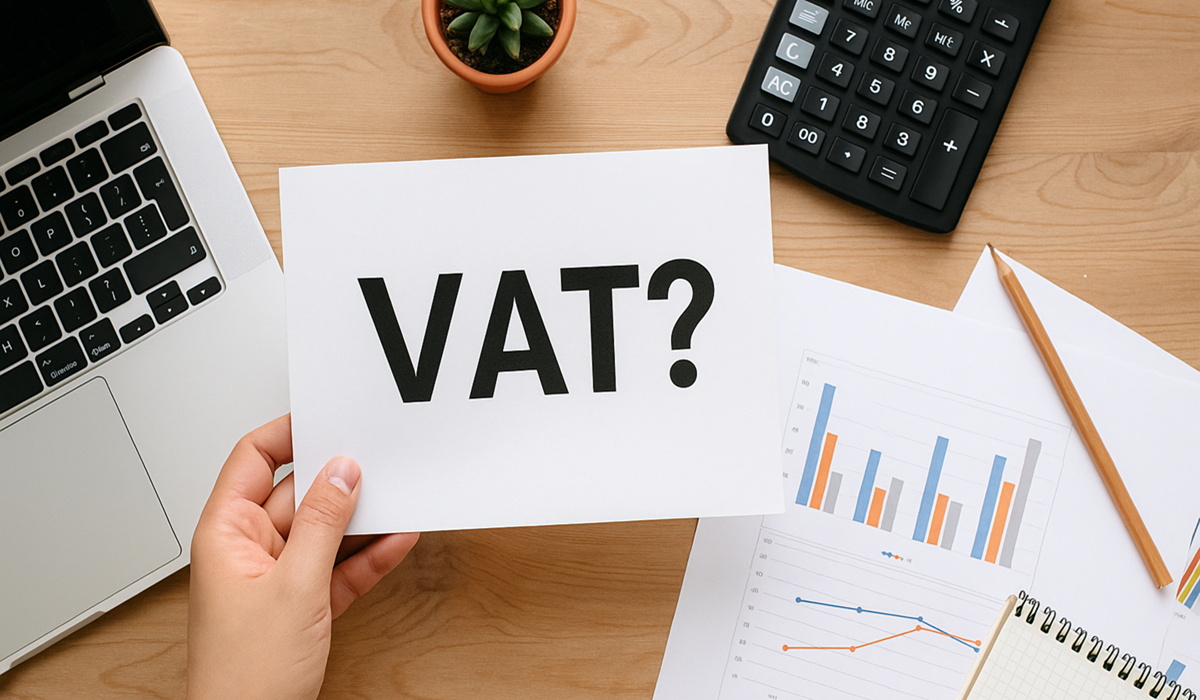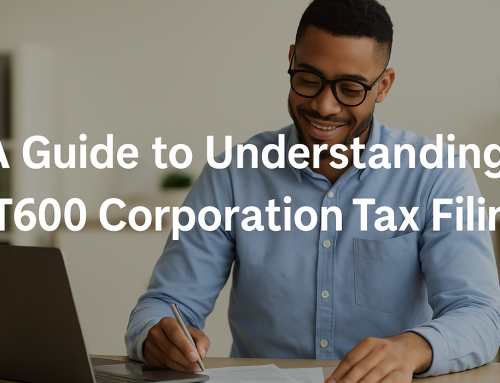Value Added Tax (VAT) is a government levy applied to the sale of most goods and services in the UK. If your business is registered for VAT, you’re required to charge it on eligible sales and file regular returns with HMRC. You can also reclaim VAT on qualifying business purchases, potentially reducing your overall costs.
Whether you’re running a limited company, sole trader business, or partnership, understanding when and how to register for VAT is critical, both to remain compliant and to make the most of your financial position. Yet, many small business owners delay registration or aren’t sure if it applies to them. This guide aims to clear that up.
⚠️ Failing to register for VAT when required can result in penalties and unexpected tax bills from HMRC.
What Is the VAT Registration Threshold in 2025?
In the UK, the VAT registration threshold is currently £90,000 in VAT-taxable turnover over a rolling 12-month period. This means that if the value of your VAT-eligible goods or services exceeds £90,000 in any 12 consecutive months, not just your accounting year, you’re legally required to register.
If your forecasted turnover suggests you will exceed this threshold within the next 30 days, you also must register in advance.
It’s important to review your turnover regularly — monthly if possible — to ensure you remain within the rules. Ignoring this threshold, even by mistake, can lead to serious penalties and backdated VAT bills.
What Counts Toward VAT-Taxable Turnover?
VAT-taxable turnover includes the total value of everything you sell that is not exempt from VAT. This can include:
- Sales of goods and services in the UK
- Hire or loan of business equipment
- Commissions and part-exchange deals
- Any use of company goods for personal purposes
If you’re unsure whether your products or services count, we recommend speaking to an accountant or using our VAT Returns Services for personalised guidance.
Do You Need to Register?
In short, you must register for VAT if:
- Your taxable turnover exceeds £90,000 in the last 12 months.
- You expect to go over the threshold in the next 30 days.
- You import goods worth more than £90,000 from outside the UK.
However, you can also register voluntarily, and for some businesses, doing so is a strategic move.
Voluntary VAT Registration – Is It Worth It?
Even if your turnover hasn’t reached £90,000, voluntarily registering can offer financial and reputational benefits. Many small business owners choose this route because it allows them to:
- Reclaim VAT on setup costs and ongoing expenses
- Look more professional and established to clients
- Prepare early if they anticipate crossing the threshold soon
- Work more easily with VAT-registered suppliers or clients
For example, a small marketing agency working with corporate clients might benefit from VAT registration because their customers can reclaim the VAT charged — and the agency can also reclaim VAT on software, subscriptions, or office equipment.
What Happens If You Don’t Register on Time?
Not registering when required can come with painful consequences. HMRC may:
- Impose penalties for late registration
- Require you to pay VAT on historical sales
- Backdate your VAT registration to the point you exceeded the threshold
That means if you weren’t charging VAT, you may still owe it to HMRC, even if you didn’t collect it from your customers. Staying on top of your income and registration status is absolutely essential.
What to Expect After VAT Registration
Once registered, you’ll receive a unique VAT number, and you must:
- Charge VAT on applicable sales
- Include your VAT number on invoices
- Submit VAT returns, usually every quarter
- Pay VAT to HMRC
- Stay compliant with Making Tax Digital (MTD) for VAT
You can also reclaim VAT on most business purchases and services, including equipment, software, travel expenses, and professional fees.
Choosing the Right VAT Scheme
When registering, you’ll be given options for how to manage your VAT reporting. We designed our VAT services to help you decide.
The main VAT schemes include:
Standard Accounting Scheme
Ideal for most growing businesses. You record VAT on the date of the invoice and payment.
Cash Accounting Scheme
You only pay VAT when you receive payments from customers, useful for businesses with cash flow issues or slow-paying clients.
Flat Rate Scheme
A simplified option for small businesses with a turnover under £150,000. You pay a fixed percentage of turnover as VAT and keep the difference. No need to reclaim VAT on most expenses.
Need help selecting the right one? We’ll walk you through the pros and cons as part of our tailored VAT support.
🤝 How Pro AccX Can Help
At Pro AccX, we support small and medium-sized businesses across the UK with a complete VAT solution, from registration to returns. We can:
Assess if you need to register
- Register your business for VAT with HMRC
- Help choose the most tax-efficient scheme
- Prepare and file your VAT returns quarterly
- Ensure full compliance with Making Tax Digital rules
- Keep your books tidy with Bookkeeping Services
We also provide Management Accounts so you always have real-time visibility of your finances and never miss a registration deadline.
VAT registration is a big step, but one that can unlock cash flow benefits and help your business grow professionally and compliantly. Whether you’re nearing the threshold or just want to be proactive, understanding your VAT obligations now will save you stress and money later.




